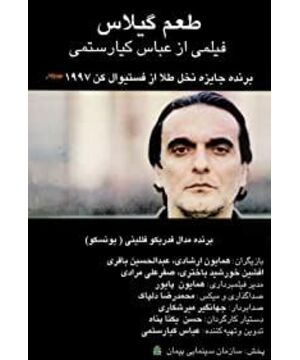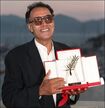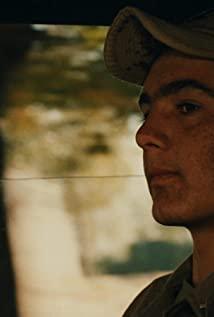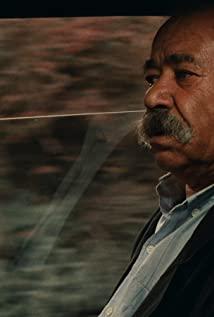In the retrospective exhibition of Abbas in 2021, I saw the legendary "The Taste of Cherry" in Maggie.
On the whole, this is the story of a middle-aged Iranian man, Badi, who considers suicide because of his unsatisfactory life, and drives a Land Rover to find the "buried" on the road.
The first half of the journey can be said to be uninteresting to the naked eye: the winding mountain dirt road of yellow sand, occasionally a few birds fly by, and even the vegetation is yellow and yellow. If Kitano Takeshi got rid of unnecessary impurities in the movie from his lines, then Abbas stripped all the flashy decorations from the lens language-of course, it must be stated here that it is definitely not to compare with the directors, but from the The angle of filming is reminiscent of some. What about Buddy's chosen "Burners"? Whether it is a scavenger, a soldier, or a theologian, there is a shyness, or a sullenness, in the language and expression. "1" A scavenger wearing a UCLA sweater that he found. Of course he didn't know what UCLA stood for, and he had no hope and further curiosity about the "new job" and "good pay", so he didn't even get into Buddy's car. "2" soldier. This recruit, who lived with his uncle at the house of his deceased aunt, was the first time Buddy veiled with his neighbor about someone who "may be suicidal" and entered into his life planning issue for the first time. Buddy was talking the whole time, holding the initiative. When they reached their destination, the soldiers fully understood Buddy's intentions and were obviously very resistant. He didn't want to get out of the car, or even turned his head away to look at the burial place Buddy said, so he fled. "3" Theologians. Traveling to Iran from Afghanistan - the friend of the guard, it was Buddy's second choice - because the guard who offered to invite Buddy to sit and sit, finally refused because he insisted on guarding an unattended construction site during the holiday. An invitation to go for a ride with him. The theologian and Buddy talked to each other, but couldn't convince each other. Although the theologian got out of the car and looked at the "pit", because of his beliefs, he always insisted that "suicide is wrong", and was taken back to the place where he got on the car by Buddy. Let's focus on "4", and finally the old man who agreed to Buddy's request - Bahri, an old man who works in the Natural History Museum. The camera didn't even capture him when he got into the car. In a few minutes of footage, only the voice of an old man reminds us that after the theologian got out of the car, Buddy invited another old man to get in the car and told him his intentions. This time, the talkative old man with rich life experience completely mastered the right to speak, and Buddy just listened quietly from beginning to end. Many critics have mentioned a conversation between the two: "I don't know the road." "I know it." "Longer, but also better and more beautiful." It is indeed very directional, as if the old man is telling middle-aged people who do not have rich experience in life: choose to be born, although the road to go will be longer, but the scenery you will get It will be better and more beautiful. This may be the realization that he once tried to commit suicide, but chose to live because of the sweetness of mulberries. Until the old man appeared, more scenery appeared in Abbas's lens: green trees, colorful flowers, noisy human voices, and recording beautiful couples with cameras.
I think this is a gradual process, a process of deepening the choice of life and death: scavengers represent people who do not even think about life and death in daily life; soldiers represent people who are afraid to talk about life and death and are unwilling to face it; theologians represent people who have always been People who absorb the knowledge of life and death in religion, but define and spread it rigidly. Only Bahri, a museum staff member, used decades of life experience, a suicide attempt, and even a Turkish story to persuade Buddy not to choose, but he still respected Buddy's final decision.
In another film review, I saw that the director once mentioned in an exclusive interview: "The Taste of Cherry is not about suicide, but about our right to choose our lives." The reaction was as annoyed as the soldiers and the theologians: yes, from the beginning, Buddy was talking about the possibility of walking back at the call of the Burial, or being buried by 20 shovels of earth. Why do we only think about suicide itself and ignore his hesitation and undecidedness? He did think about death—dead whole, with dignity; but he didn't make up his mind, maybe he'd be called back from the same place. Only the old man respected both, and Buddy also seriously felt the beauty of nature and life that the old man said before the "final moment".
There is some confusion about the ending. It's not so much confusion about Buddy's life and death as it is about the director's confusion about some settings. I don't know if everyone noticed, but what Buddy told everyone was that he would leave 200,000 in his car before going down the pit. Whether the "buryer" called him back or buried him, Can take the 200,000 from the car after the event is completed. But the actual situation is: at night, instead of driving his Land Rover, he called a taxi. When the taxi arrived, he opened the curtains and saw the taxi, then turned off the lights and left the house to go to the destination. And when he was sitting beside the cherry tree for a while, the camera also appeared in the distance at the foot of the mountain, the picture of the taxi going away.
What about money? What did he think, why did he bring money? Did he finally decide not to die? Do you think you don't need to pay the elderly because you don't die? But he ended up clearly lying in the pit. Doesn't it mean that no matter whether A or B is possible, the elderly will be paid?
I don't know if Buddy will take sleeping pills after the rain falls. Or, I don't even know if he's carrying sleeping pills. But what confuses me more is some of the above director designs. Friends who have ideas or answers are welcome to leave a message.
Some of the above viewpoints are inspired by the film reviews of other bean fans, and others are derived from new ideas generated by myself and others in talking, thinking and writing.
View more about Taste of Cherry reviews











